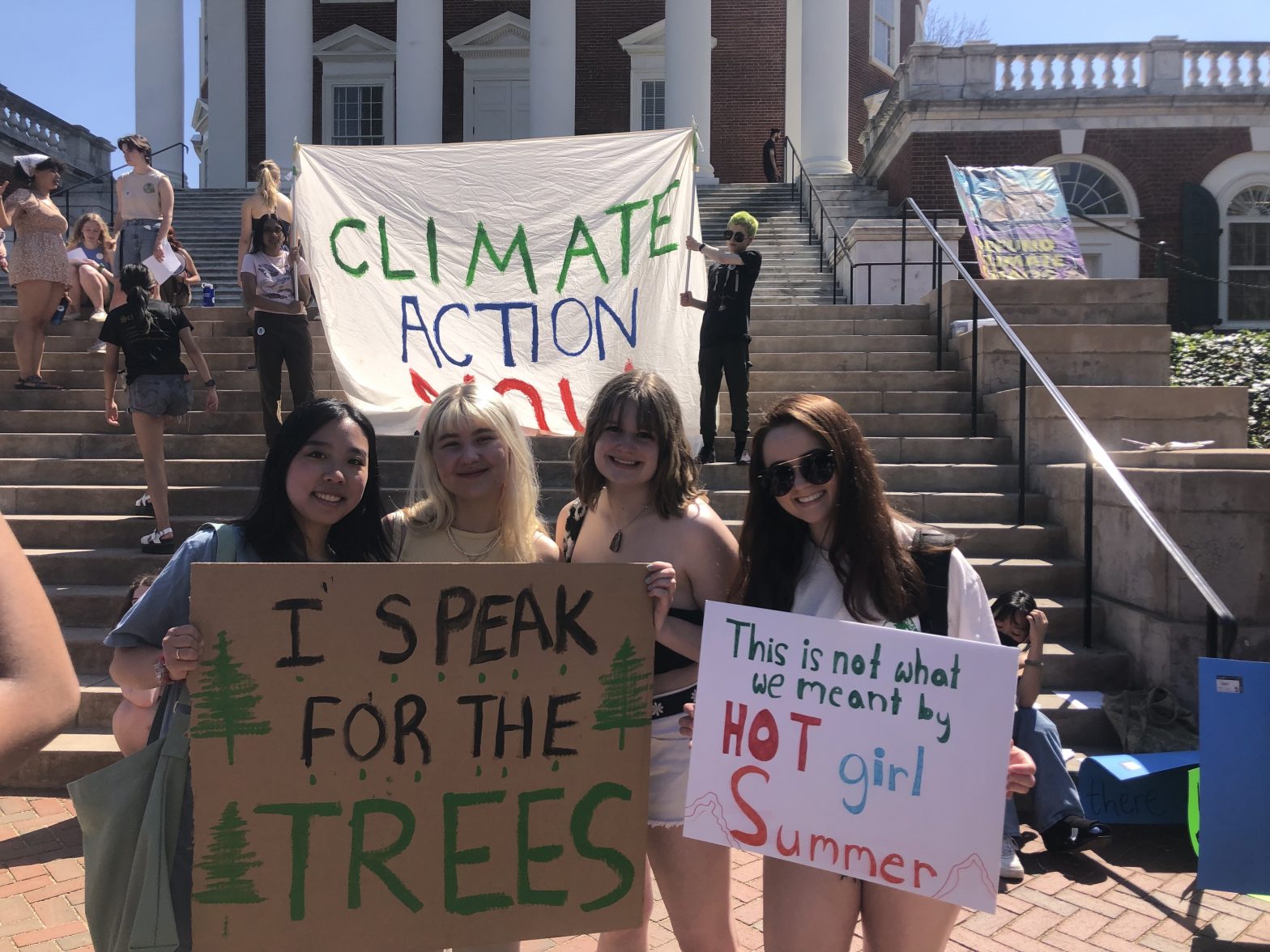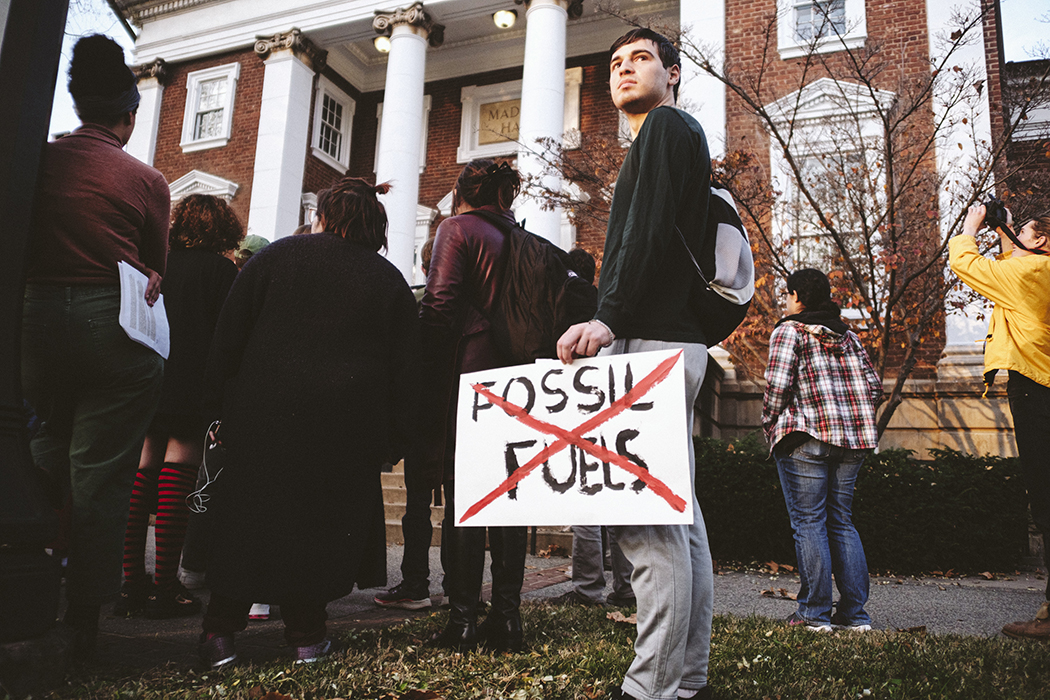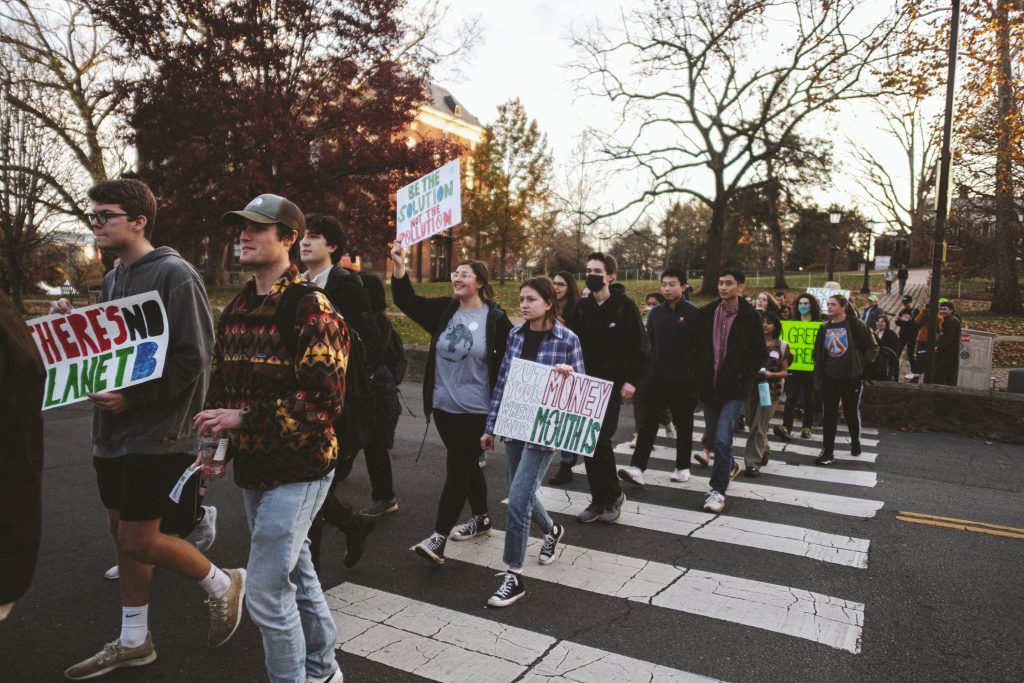By Kristin O’Donoghue
About 200 students calling on the University of Virginia to divest from fossil fuel industries marched across Grounds to the park near the coal plant on Earth Day, April 22.
Marchers first met at the Rotunda, where leaders of DivestUVA shared opening remarks, beginning with recognition of the Monacan Nation, the “historic caretakers of the land.”
“We should all be dedicated to acknowledging and utilizing our privilege and position for change, and strive for an activism that is decolonizing, self-aware, and as equitable as possible,” said one speaker.
DivestUVA organized the march with a list of specific demands: that UVA and the UVA Investment Management Company, UVIMCO, fully divest by the end of the year from any company whose primary profit is from the extraction or distribution of fossil fuels; that the university remove the influence of fossil fuel companies from its administration and educational spaces; and that both UVA and Charlottesville have an environmental justice report done to see effects of the city structure on BIPOC communities, and then act to remediate the damage done.
Alex, a fourth-year student, read a poem she wrote about the university’s complicity in the climate crisis.
“It makes me angry to see the university that I love and care about fund an industry setting the earth on fire,” she said.
The students then took off toward the coal plant, to chants of “Hey Jim Ryan, the planet’s dyin’!”
Homemade signs included slogans such as “I speak for the trees” and “This is not what we meant by ‘Hot Girl Summer.’”
When one of the organizers asked the crowd what brought them there, a student called out, “I don’t want the world to end.”
The marchers were energized, and the force of the group appeared magnetic as a few onlookers joined them.
Zack, an aspiring lawyer specializing in Indigenous peoples’ law, was one of those who came to watch—and then got involved. He even addressed the crowd, saying: “I noticed the engines of the train tuning out the chants of climate activists marching.”
Josh Vana, director of ARTIVISM, an organization that connects resident artists and activists in the central Virginia Area, spoke next.
“I’m here to talk about power,” Vana said. He warned the students about the “Virginia Way,” a term describing how entrenched power works to pursue business as usual while refusing to respond to those calling for justice.
Vana discussed the group’s efforts to prevent the building of the Mountain Valley Pipeline, which he called the “largest climate change catalyst right now in our region.”
The pipeline spans 303 miles, from northwestern West Virginia to southern Virginia, and the project is both over budget and behind schedule. Vana pointed people to StopMVP.org, where they can join the fight.
“Stay loud,” he told the students. “Agitate, educate, and organize.”
The event concluded with an “email zap,” during which students individually sent emails with the DivestUVA demands to UVA President Jim Ryan at the same time, in an effort to flood his inbox and force his attention.



